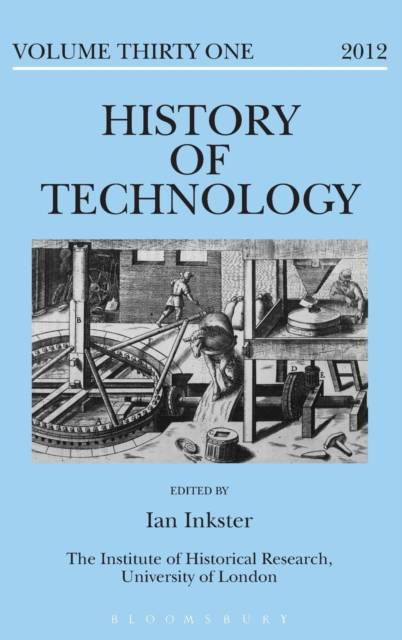
- Afhalen na 1 uur in een winkel met voorraad
- Gratis thuislevering in België vanaf € 30
- Ruim aanbod met 7 miljoen producten
- Afhalen na 1 uur in een winkel met voorraad
- Gratis thuislevering in België vanaf € 30
- Ruim aanbod met 7 miljoen producten
History of Technology Volume 31
Omschrijving
New work on early modern Europe has now opened up the hidden avenues that link changes of technologies with a complex of cognitive, institutional, spatial and cultural elements. It is true that all divisions of history wish to incorporate all other divisions unto themselves, but in the essays of our first collection there are specific cases and analyses clearly delineated to show how technologies and systems for the production, reproduction and representation of technological changes emerged out of fundamental aspects of European society and mentality. The question must be: How far were such fundamental aspects unique (in their entirety and configuration) to Europe?
The second collection on patent agency takes the modern industrialization of Europe as its focus, and illustrates the manner in which systems of intellectual property rights generated manifold agencies that acted to both spread and control the use of knowledge in advanced sites. Patent agency has been generally neglected by historians, one reason for this being the difficulty of defining effective agency beyond the obvious confines of those who were actually trained and remunerated as agents of invention. Informal networks or sites may have been crucial in converting general patent systems into local environs of technical advance.Specificaties
Betrokkenen
- Uitgeverij:
Inhoud
- Aantal bladzijden:
- 272
- Taal:
- Engels
- Reeks:
- Reeksnummer:
- nr. 31
Eigenschappen
- Productcode (EAN):
- 9781441152794
- Verschijningsdatum:
- 13/09/2012
- Uitvoering:
- Hardcover
- Formaat:
- Genaaid
- Afmetingen:
- 152 mm x 236 mm
- Gewicht:
- 453 g

Alleen bij Standaard Boekhandel
Beoordelingen
We publiceren alleen reviews die voldoen aan de voorwaarden voor reviews. Bekijk onze voorwaarden voor reviews.






